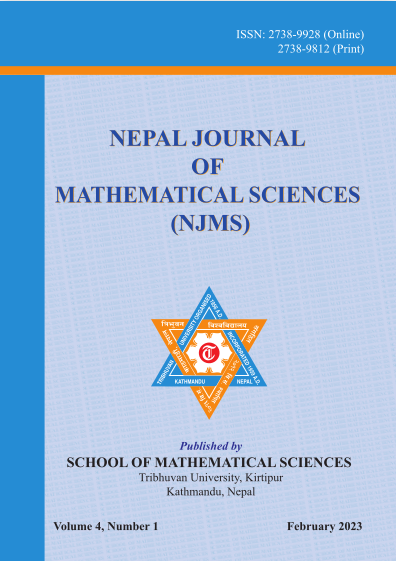Mathematical Modeling of the Effect of Vaccination on the Dynamics of Infectious Diseases
DOI:
https://doi.org/10.3126/njmathsci.v4i1.53151Keywords:
Epidemic model, Vaccination, Equilibrium, Reproduction number, SimulationAbstract
The development of vaccines revolutionized the methods of controlling infectious diseases and has saved many lives. In this work, an SEIR epidemic model was designed to demonstrate the impact of vaccination on the control of epidemic diseases. The model was shown to possess positive solutions. The disease-free equilibrium and the endemic equilibrium of the model were derived and the stability properties of the two equilibriums were examined via stability theory of nonlinear differential equation. An important epidemic-controlled parameter, the reproduction number, was derived for the model and computed via simulation using parameter values from published data. The result of the simulation showed that vaccination was capable of inhibiting the outbreak of epidemic diseases whenever the numerical values for reproduction number are less than unity.
Downloads
Downloads
Published
How to Cite
Issue
Section
License
© School of Mathematical Sciences, Tribhuvan University

